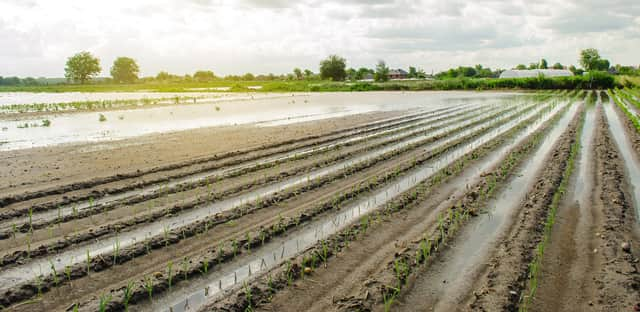Going Green: Impact of so much rain has been catastrophic


What’s more, according to their figures, 1,695.9mm of rain fell in England in the 18 months from October last year to March this year which has gone down as the highest amount of rainfall for any 18 month period since records began.
Wherever you live in the UK and no matter how much you might enjoy the rain, there’s no doubting the autumn and winter of 2023 and 2024 have been a washout.
Advertisement
Hide AdAdvertisement
Hide AdWhile the wet weather might have ruined a few holidays, wedding days and birthday plans though, the implications of this much rain are devastating. UK farmers are suggesting 2024 could be the first year since World War 2 that there won’t be a UK harvest because the weather has been that bad and so many of the fields they would have planted by now are still submerged under flood water.
The Agriculture and Horticulture Development Board have predicted wheat yields will be down 15 per cent, winter barley down 22per cent and oilseed rape down 28 per cent, the biggest drop since the 1980s.
Joe Stanley, a farmer at a research farm in Leicestershire, said he and his colleagues face the first year without a harvest since the land was first farmed after the Second World War. He said: "Unless it basically stops raining today and then it becomes nice and sunny and windy, we're not going to get any crops in this year. That's a real danger."
While the farming situation has huge implications for the UK economy and the cost of living crisis, it’s not just food shortages we could be looking at.
Advertisement
Hide AdAdvertisement
Hide AdProperties across the country have been flooded with people forced from their homes. Insurers expect to pay out an estimated £560 million to help with damage caused by Storms Babet, Ciaran and Debi that struck in October and November. The latest figures from storm Kathleen aren’t available yet but that’s a lot of money and many homes won’t have flood insurance to help towards the cost of repair and building back better.
Anyone with children will know grassroots sports fixtures across the country have been cancelled because of waterlogged pitches and impassable roads. Worcester’s New Road Cricket Ground has been submerged under water and with the new season starting, the club has had no choice but to move to Kidderminster while their waterlogged venue dries out.
Put simply, the impact of so much rain has been catastrophic on so much of the UK. It’s ruining harvests, homes, and sports and hitting consumers hard at the tills. The question we need to ask and find answers for is how we prepare for more severe and frequent flooding in the future. March was the tenth record breaking month in a row for temperatures. Sadly we’re entering a new era due to climate change and we need to act fast to stop the pollution and protect our one home.